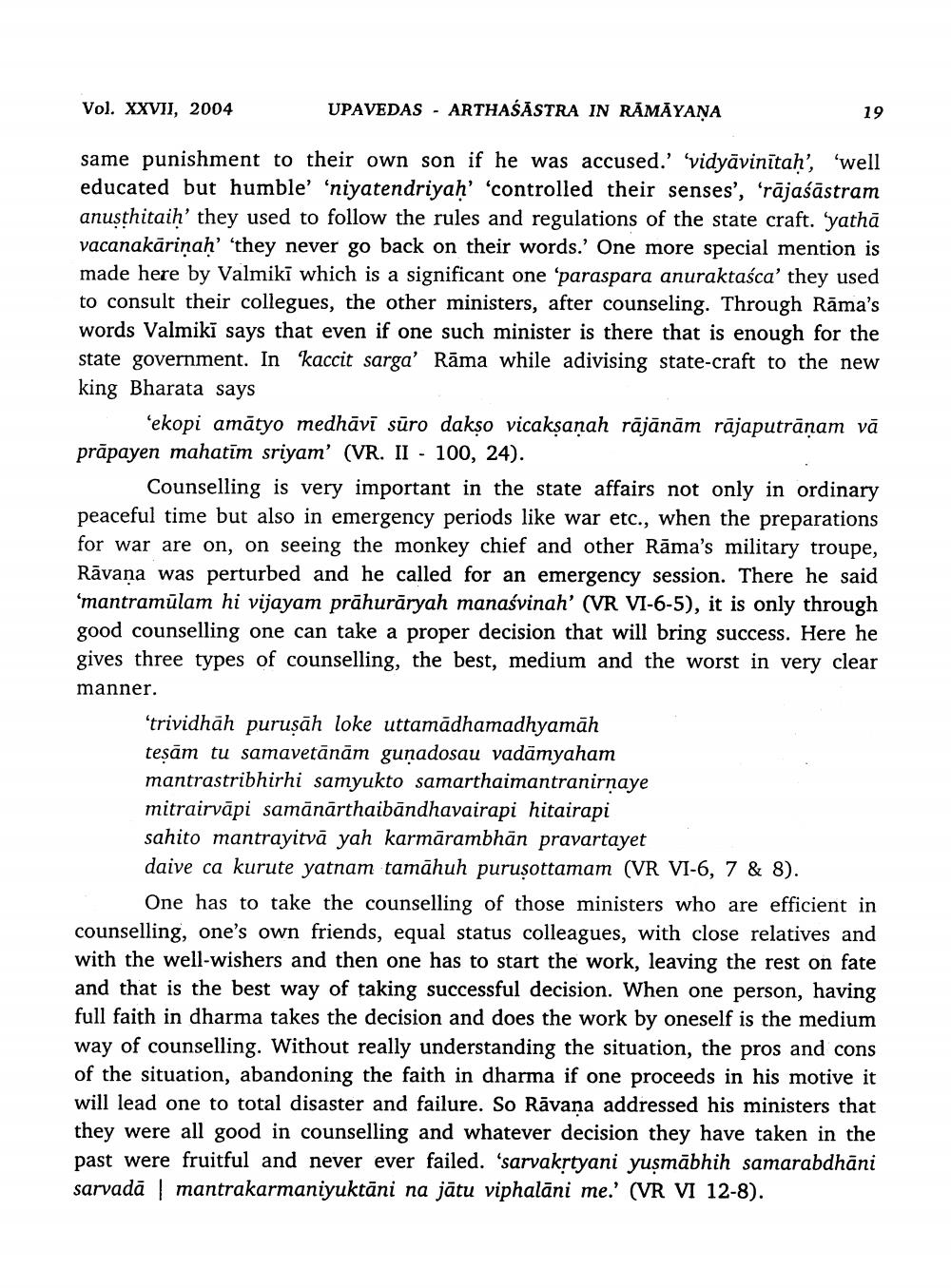________________
Vol. XXVII, 2004
UPAVEDAS - ARTHAŚĀSTRA IN RĀMĀYANA
19
same punishment to their own son if he was accused.' 'vidyāvinītah', 'well
ut humble' 'niyatendriyah' 'controlled their senses', 'rājaśāstram anusthitaih' they used to follow the rules and regulations of the state craft. 'yathā vacanakārinah' 'they never go back on their words.' One more special mention is made here by Valmiki which is a significant one 'paraspara anuraktasca' they used to consult their collegues, the other ministers, after counseling. Through Rāma's words Valmiki says that even if one such minister is there that is enough for the state government. In “kaccit sarga' Rāma while adivising state-craft to the new king Bharata says
ekopi amātyo medhāvī sūro dakso vicaksanah rājānām rājaputrānam vā prāpayen mahatīm sriyam' (VR. II - 100, 24).
Counselling is very important in the state affairs not only in ordinary peaceful time but also in emergency periods like war etc., when the preparations for war are on, on seeing the monkey chief and other Rāma's military troupe. Rāvana was perturbed and he called for an emergency session. There he said ‘mantramūlam hi vijayam prāhurāryah manaśvinah' (VR VI-6-5), it is only through good counselling one can take a proper decision that will bring success. Here he gives three types of counselling, the best, medium and the worst in very clear manner.
'trividhāh purusāh loke uttamādhamadhyamāh teşām tu samavetānām gunadosau vadāmyaham mantrastribhirhi samyukto samarthaimantranirnaye mitrairvāpi samānārthaibāndhavairapi hitairapi sahito mantrayitvā yah karmārambhān pravartayet daive ca kurute yatnam tamāhuh puruṣottamam (VR VI-6, 7 & 8).
One has to take the counselling of those ministers who are efficient in counselling, one's own friends, equal status colleagues, with close relatives and with the well-wishers and then one has to start the work, leaving the rest on fate and that is the best way of taking successful decision. When one person, having full faith in dharma takes the decision and does the work by oneself is the medium way of counselling. Without really understanding the situation, the pros and cons of the situation, abandoning the faith in dharma if one proceeds in his motive it will lead one to total disaster and failure. So Rāvana addressed his ministers that they were all good in counselling and whatever decision they have taken in the past were fruitful and never ever failed. 'sarvakrtyani yusmābhih samarabdhāni sarvadā mantrakarmaniyuktāni na jātu viphalāni me.' (VR VI 12-8).




